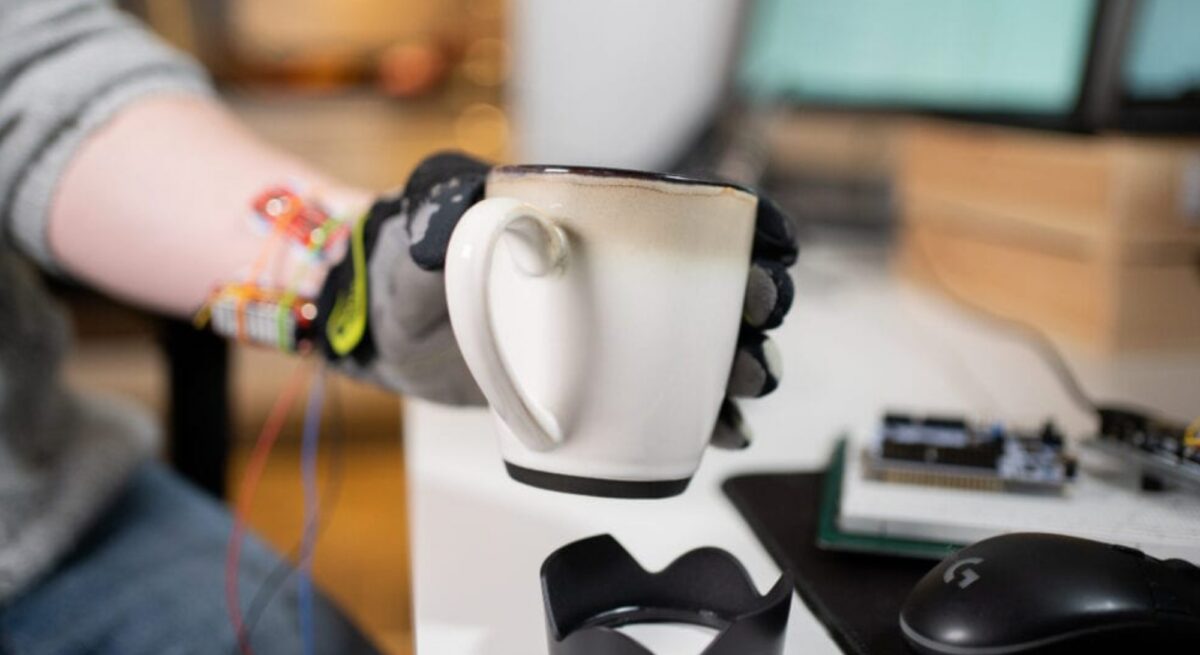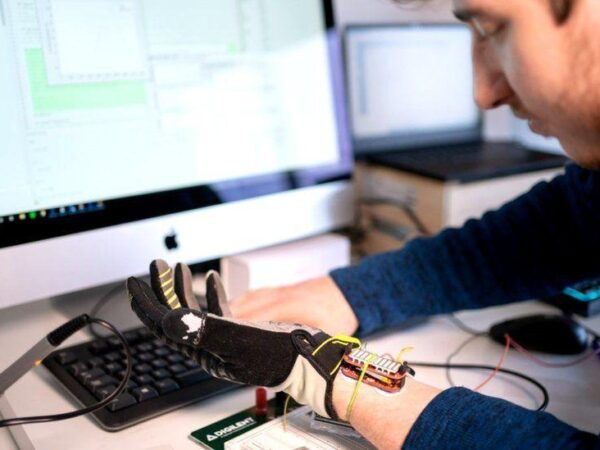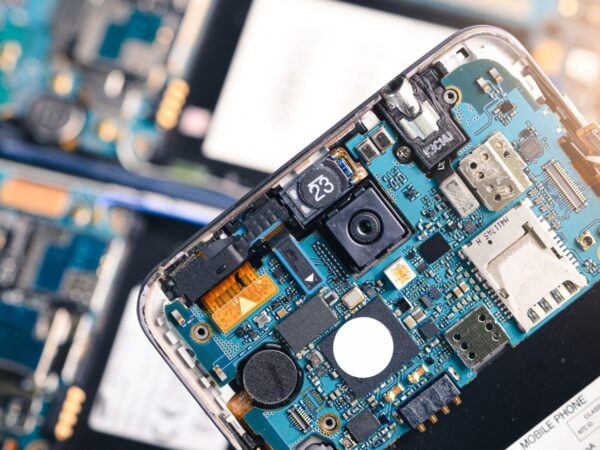
Traumatic and degenerative health conditions can leave many people with reduced strength and mobility, often impacting their ability to live independently.
In the UK alone more than 2.5 million people are currently living with hand weakness that can affect their ability to drive, cook, dress and perform countless other everyday tasks. University of Edinburgh startup Bioliberty is harnessing robotics technology to assist and rehabilitate people with reduced hand strength, empowering them to live independently for longer.
Building strength
After seeing a family member with MS struggle with reduced hand strength, University of Edinburgh graduate Ross O’Hanlon was inspired to develop technology that can support and empower people suffering with hand weakness. Ross had identified a gap in the market for assistive hand rehabilitative technology, and to help him fill it he approached his former flatmate Rowan Armstrong, who was another recent graduate from the University of Edinburgh’s MEng programme in Electronics and Electrical Engineering with Management. Rowan had worked for a couple of large medical device companies, and this experience in combination with his academic background made him an ideal co-founder.
Edinburgh Innovations has supported Ross and Rowan throughout their entrepreneurial journey by providing them with 1-2-1 consultations with a dedicated business adviser; networking opportunities; access to funding; and workshops and programmes such as the Startup Summer Accelerator.
Life-changing technology
Bioliberty, the medical robotics company that Ross and Rowan formed in 2019, has quickly gone from strength to strength. Breakthrough technological advancements in machine learning, robotics and biomedical processing in recent years have made it possible for Bioliberty to deliver the solution that hand weakness sufferers have been missing. The company has developed its first product: an exoskeleton robotic glove called Lifeglov that strengthens grip, and a digital therapy platform that helps develop natural hand strength. By combining rehabilitative robotics and digital therapy, Bioliberty has created a comprehensive solution for hand therapy that can be used at home or in a clinical setting. While the company is currently focused on users who have suffered a stroke or traumatic injury, it has its sights on catering to users with MS, arthritis and other conditions as it grows.
The young startup has already experienced much success and public recognition. Scottish EDGE, the UK’s biggest business funding competition that identifies and supports Scotland’s up and coming, innovative and high-growth entrepreneurial talent has recognised Bioliberty with an award in 2020, 2021 and 2022, with the company scooping up one of the main prize pots in Round 20. Further success is assured, as Bioliberty have recently secured £2.2 million in a funding round led by Archangels, with participation from Eos Advisory, Old College Capital, which is managed by Edinburgh Innovations, and Hanna Capital SEZC. The funding will allow Bioliberty to complete development of Lifeglov and finalise the development of its platform, and will fund the business as it pursues Food and Drug Administration approval and early commercial engagement with rehabilitation clinics in the USA.
By harnessing the very latest technological advancements, Bioliberty is helping to shape a future in which traumatic and degenerative conditions do not prevent people from living a longer independent life.
Related links


